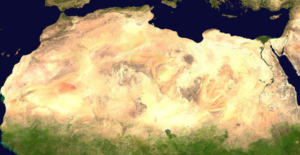by P. Hirschfeld, January 15 2019 in VPRNews
A growing number of climate advocates say increasing the price of fossil fuels is the surest way to reduce greenhouse gas emissions, but leaders in the House and Senate are resisting calls for a carbon tax in Vermont.
During the last two legislative sessions, lawmakers introduced several bills that would have assessed a new tax on carbon-emitting fossil fuels. Last week, on the opening day of the legislative session, 40 or so people rallied in the Statehouse cafeteria against a carbon tax.
…
by Charles the moderator, January 18, 2019 in WUWT
Climate change: How could artificial photosynthesis contribute to limiting global warming?
Scientists calculate areas needed for forestation and artificial photosynthesis.
After several years during which global emissions at least stagnated, they rose again somewhat in 2017 and 2018. Germany has also clearly missed its climate targets. In order to keep global warming below 2 degrees Celsius, only about 1100 gigatonnes of CO2 may be released into the atmosphere by 2050[1]. And In order to limit global warming to 1.5 degrees, only just under 400 gigatonnes of CO2 may be emitted worldwide. By 2050, emissions will have to fall to zero even. Currently, however, 42 gigatonnes of CO2 are added every year.
Almost all the various scenarios require “negative emissions”
…
by P. Gosselin, January 16, 2019 in NoTricksZone
Recently, CO2 Science brought up a paper in Nature Communications.
Using satellite images, Venter et al. 2018 found an eight percent increase in woody vegetation in sub-Saharan Africa over the last three decades, underscoring the global “greening trend”.
…
According to Wikipedia, the Sahara covers a vast area of some 9.2 million square kilometers. Eight percent of that translates into more than 700,000 square kilometers. That’s an area that’s almost as big as Germany and France combined! This is profound.
In other words, it’s well over 10,000 Manhattans!

Recent study by Venter et al finds that the Sahara has shrunk by 8% over the past three decades. NASA image, public domain.
…
La géologie, une science plus que passionnante … et diverse

